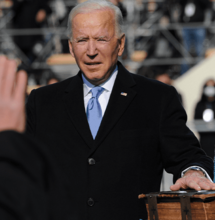Indian Tribe Seeks Pot Business Ban in Part of Washington State

Yakama Nation asserted sovereignty to keep pot away from 1.2 million acres of Yakima Valley
Yakama Nation asserted sovereignty to keep pot away from 1.2 million acres of Yakima Valley
|
[Credit: Reuters/Rick Wilking]
|
SOURCE: Reuters
AUTHOR: Jonathan Kaminsky
OLYMPIA, Washington (Reuters) - A Native American tribe, concerned about the impact of marijuana on its youth, is fighting to derail the rollout of a nascent recreational pot industry across a quarter of Washington state, where it still holds some traditional rights.
The roughly 10,000-member Yakama Nation had already asserted sovereignty to keep pot outlawed on 1.2 million acres of reservation land it controls in central Washington's Yakima Valley.
But in a bold move that could test the limits of tribal sovereignty, the Yakama are also seeking to bar pot cultivation and sales from a 10.8 million acre stretch of the state it ceded under an 1855 treaty with the U.S. government, but where the tribe still holds hunting, food-gathering and fishing rights.
"Marijuana is the biggest problem for our people up to age 40," said George Colby, attorney for the Yakama Nation. "It's a bigger problem than alcohol."
The move adds to a growing backlash against pot in Washington state that pits the liberal tech hub of Seattle against some more conservative areas. At least six local governments are also taking a stand to keep out pot businesses, including two that lie on the Yakama's ceded lands.
Marijuana businesses on those lands, spanning 10 counties, would exacerbate an epidemic of use in a tribe with no cultural ties to pot, Yakama says. It has filed challenges to nearly 1,300 pending pot business applications there.
The tribe, which has threatened to sue if its demands are not met, in the past has won legal cases blocking projects deemed detrimental to its well-being, including a proposed landfill on the ceded lands. About a quarter of the land is national forest, where pot is already banned by federal law.
Chris Marr, a member of the state Liquor Control Board charged with regulating pot, said it would consider the tribe's concerns when issuing individual licenses, but views the tribe's assertion of authority with skepticism.
"As far as requiring us to deny applications on all ceded lands, to me that seems to be quite a heavy lift," he said.
Washington and Colorado became the first U.S. states to legalize recreational marijuana in 2012 ballot initiatives, and a similar measure will be on the ballot in Alaska this summer.
The federal government classifies marijuana as an illegal narcotic, although the Obama administration issued guidelines in August giving states new leeway to experiment with legalized cannabis. Colorado was the first to open a network of state-licensed marijuana stores in January.
Washington, which issued its first pot-growing license this month, is set to follow suit in June. Pot regulators have received more than 7,000 applications from entrepreneurs seeking licenses to grow, process or sell marijuana.
CONFRONTATION OR COMPROMISE?
The Yakama Nation has cited federal anti-drug laws, and its desire to curb pot use among its young tribal members, in challenging marijuana retail business applications in the ceded lands, where over 600,000 non-Indians reside.
A 2011 U.S. National Survey on Drug Use and Health report found 22 percent of Native American youth, ages 15 to 17, had used marijuana within the past month, nearly double the national average.
If no accommodation is reached, the tribe will likely make an unprecedented assertion of tribal authority over the ceded lands by suing in federal court, Colby said. While it has fought off uses of ceded land it deems objectionable before, it has never sought to block a state law from taking hold there.
"We are making this the test case," Colby said.
Troy Eid, a former U.S. Attorney for Colorado who chairs a federal advisory panel for criminal justice issues on Native American lands, suggested the sides try to reach a settlement rather than heading into a drawn-out court case.
"They ought to come to some voluntary agreement where each side reserves its arguments about sovereignty and its ability to make law," Eid said.
The Yakama Nation's demands put it somewhat awkwardly on the same side of the fence as the cities of Yakima and Wenatchee, which have enacted their own bans on marijuana retailers and producers over the objections of state regulators.
Along with other local governments preferring to keep marijuana sales out, Yakima and Wenatchee got a boost when the state attorney general issued an opinion in January that cities and counties could opt to ban pot within their own boundaries.
But both Yakima and Wenatchee overlap the tribe's ceded lands and were wary of appearing to acknowledge any assertions of Indian sovereignty there.
"When they start talking about ceded land, there's a lot of other things involved other than marijuana, like water rights," said Yakima city councilman Bill Lover, who opposes pot businesses.
Leaders of other Native American tribes, by contrast, have expressed support for the Yakama's bold demands, even if no other tribes appear poised to followed suit.
"It's a steep hill they're trying to climb," said Ron Allen, chairman of the Jamestown S'Klallam Tribe in western Washington, which is among a majority of U.S. tribes on whose reservations pot use remains banned. "But I recognize their right to try to control the environment their community lives within."
(Editing by Cynthia Johnston and Gunna Dickson)



